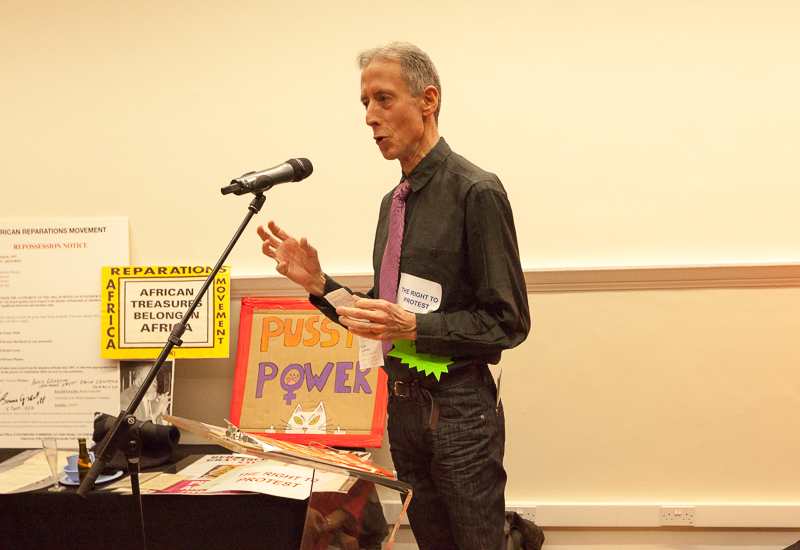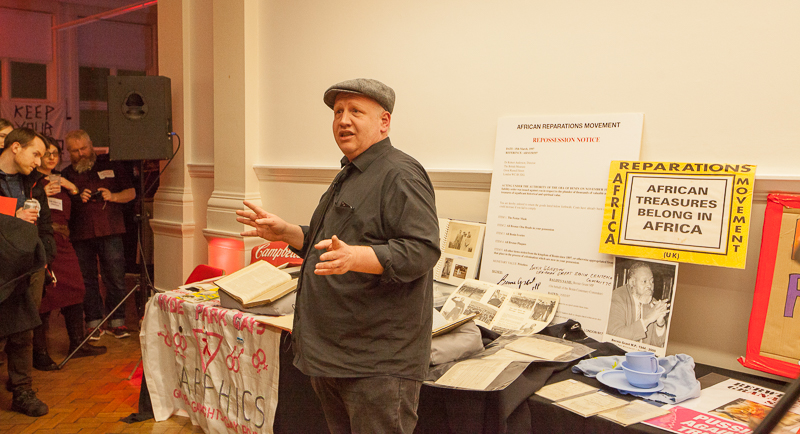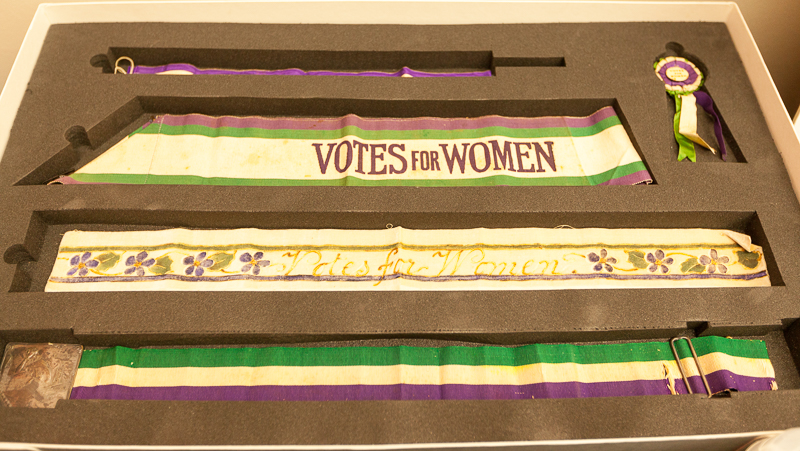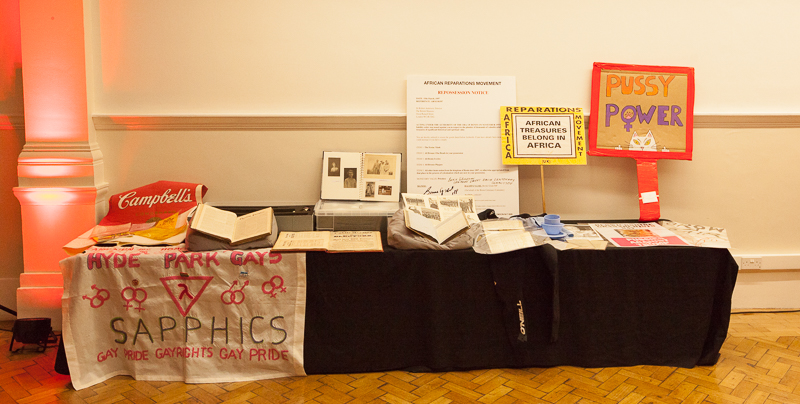1 Feb 2018 | Campaigns -- Featured, Statements, Tunisia
The undersigned regional and international NGOs join Tunisian organisations in their demands that the government immediately withdraw a draft law on the broadcasting regulator which fails to meet international standards on freedom of expression and independent broadcasting in democratic countries.
As part of the important process of harmonising Tunisian legislation with the 2014 Constitution, a draft law was submitted to the Assembly of People’s Representatives in December 2017 and it is currently under review by the parliamentary Commission of Rights and Freedoms. The draft law would partly replace the existing legislation in this area -Decree-Law No. 116-2011, on the Freedom of Broadcasting Communication and the creation of the Higher Independent Audio-Visual Communication Authority (HAICA) – with new legislation solely establishing a new broadcasting regulator, the Audio-Visual Commission.
The draft law and associated reforms have already been criticised by civil society, as the bill was prepared by the Tunisian government without substantial prior dialogue with local human rights and professional groups.
In June and again in December 2017, Tunisian and international human rights and professional groups wrote open letters to President Beji Caid Essebsi, Parliament Speaker Mohamed Ennacer and Prime Minister Youssef Chahed, expressing their deep concern about the draft law, its “unsatisfactory wording”, the “dangerous restrictions” of the prerogatives of the broadcasting regulator it would create, and the “deficiencies in the safeguards guaranteeing” its independence. They also explained that fragmenting of the legal framework “would open the door to ambiguity, conflict and limitation of the freedom of audiovisual communication and the independence of the regulatory body.” There has been no response.
Two legal analyses of the draft Law were made public in Tunis in early January 2018 by Vigilance for Democracy and the Civic State (VDCS) and by ARTICLE 19, which concluded that the draft law did not comply with applicable international standards.
We, the undersigned, call on the Tunisian government to immediately withdraw its draft law and initiate a constructive dialogue with relevant civil society and professional groups, independent media experts, and members of parliament. Such a dialogue would help pave the way for the adoption of a comprehensive audiovisual law, in line with the 2014 Constitution and international standards.
Signed,
Vigilance for Democracy and the Civic State
7amleh – Arab Center for the Advancement of Social Media
Adil Soz – International Foundation for Protection of Freedom of Speech
Afghanistan Journalists Center (AFJC)
Africa Freedom of Information Centre (AFIC)
Americans for Democracy & Human Rights in Bahrain (ADHRB)
Arabic Network for Human Rights Information (ANHRI)
ARTICLE 19
Association for Freedom of Thought and Expression (AFTE)
Association for Media Development in South Sudan (AMDISS)
Bahrain Center for Human Rights
Cartoonists Rights Network International (CRNI)
Center for Independent Journalism – Romania
Center for Media Freedom and Responsibility (CMFR)
Committee to Protect Journalists (CPJ)
Digital Rights Foundation
Foro de Periodismo Argentino
Foundation for Press Freedom – FLIP
Freedom Forum
I’lam Arab Center for Media Freedom Development and Research
Independent Journalism Center – Moldova
Index on Censorship
Maharat Foundation
Media, Entertainment and Arts Alliance
Media Institute of Southern Africa (MISA)
Media Watch
National Union of Somali Journalists (NUSOJ)
Pacific Islands News Association
Pakistan Press Foundation
Palestinian Center for Development and Media Freedoms (MADA)
Syrian Center for Media and Freedom of Expression (SCM)
Trinidad and Tobago’s Publishers and Broadcasters Association
World Association of Community Radio Broadcasters (AMARC)
World Association of Newspapers and News Publishers
Arab Society for Academic Freedoms
Association Ifouki Media Bladi (IBM), Morocco
Community Media Solutions (CMSO)
Community Radios Association (ARAM), Morocco
Euromed Rights
Center for Media Freedom (CMF), Morocco
Organization for Freedom of Expression and of the Media (OLIE), Morocco
Forum for alternatives in Morocco (FEMAS)
Freedom Now, Morocco
International Media Support (IMS)
Lawyers for Justice in Libya
Libya Al-Mostakbal Center for Media and Culture
Libyan Center for Press freedom (LCPF)
Moroccan Association for Investigative Journalism (AMJI)
1 Feb 2018 | Events
[vc_row][vc_column][vc_column_text]A panel discussion with Brigadier Geoffrey Dodds of the Defence and Security Media Advisory Committee, Adam Wagner and Jem Collins of the campaigning group RightsInfo, and Rachael Jolley, editor of Index on Censorship.
As the Human Rights Act is under review, panellists will debate the implications and answer questions from the audience.[/vc_column_text][/vc_column][/vc_row][vc_row][vc_column width=”1/2″][vc_single_image image=”97867″ img_size=”full” add_caption=”yes” alignment=”center”][/vc_column][vc_column width=”1/2″][vc_single_image image=”97865″ img_size=”full” add_caption=”yes” alignment=”center”][/vc_column][/vc_row][vc_row][vc_column width=”1/2″][vc_single_image image=”90098″ img_size=”full” add_caption=”yes” alignment=”center”][/vc_column][vc_column width=”1/2″][vc_single_image image=”97866″ img_size=”full” add_caption=”yes” alignment=”center”][/vc_column][/vc_row][vc_row][vc_column][vc_column_text]
When: Wednesday 7 March 4.30-7pm
Where: Room TM1-83, London Metropolitan University 166-220 Holloway Road London N7 8DN (Map)
Tickets: Free. Registration required via Eventbrite.
[/vc_column_text][/vc_column][/vc_row]
31 Jan 2018 | Events
[vc_row][vc_column][vc_single_image image=”97829″ img_size=”full” alignment=”center”][vc_column_text]Index on Censorship’s associate arts producer Julia Farrington joins a post-show panel hosted by Javaad Alipoor to discuss media representation, stereotypes and masculinity. Free to ticket holders on the night.
We live in a time where old orders are collapsing: from the postcolonial nation states of the Middle East, to the EU and the American election. Through it all, tech savvy and extremist groups rip up political certainties.
Amidst this, a generation of young men find themselves burning with resentment, without the money, power and sex they think they deserve. This crisis of masculinity leads them into an online world of fantasy, violence and reality.
The Believers Are But Brothers envelops its audience in this digital realm, weaving us into the webs of resentment, violence and power networks that are eating away at the structures of the twentieth century. This bold one-man show explores the smoke and mirrors world of online extremism, anonymity and hate speech.[/vc_column_text][/vc_column][/vc_row][vc_row][vc_column][vc_column_text]
[/vc_column_text][/vc_column][/vc_row][vc_row][vc_column][vc_basic_grid post_type=”post” max_items=”1″ element_width=”12″ grid_id=”vc_gid:1558536160912-3fe810f7-4b4c-5″ taxonomies=”21851″][/vc_column][/vc_row]
30 Jan 2018 | News and features, Volume 46.04 Winter 2017, Volume 46.04 Winter 2017 Extras
[vc_row][vc_column][vc_column_text]

Peter Tatchell discusses the importance of the right to protest. (Photo: Sean Gallagher / Index on Censorship)
Index on Censorship magazine celebrated the launch of its winter 2017 magazine at the Bishopsgate Institute in London with an evening exploring the legacies of iconic protests from 1918 and 1968 to the modern day and reflecting on how today, more than ever, our right to protest is under threat.
Speakers for the evening included human rights campaigner Peter Tatchell, Bishopsgate Institute special collections and archives manager Stefan Dickers and artist Patrick Bullock.
Tatchell discussed the importance of protest for any democracy and the significant anniversaries of protests in 2018 throughout his speech. “This year is a very special year, a very historic year, I think that those protests remind us that protest is vital to democracy,” he said. “It is a litmus test of democracy, it is a litmus of a healthy democracy. Democracies that don’t have protest, there is a problem, in fact, you might even say they aren’t true democracies.”
“With 1968 came the birth of the women’s liberation movement, the mass protests in Czechoslovakia against Russian occupation, and, of course, the huge protests against the American war in Vietnam,” Tatchell added. “Those protests all remind us that protest is vital to democracy.”

Bishopsgate Institute special collections and archives manager Stefan Dickers at the launch of What price protest? (Photo: Sean Gallagher / Index on Censorship)
This year also marks the centenary of the right to vote for women in Britain. Dickers showcased artefacts the Bishopsgate Institute’s collection of protest memorabilia, including sashes worn by the Suffragettes and tea sets women were given upon leaving prison for activities related to their activism.

Suffragette sashes at the launch of What price protest? (Photo: Sean Gallagher / Index on Censorship)
Attendees included actor Simon Callow, who stressed the importance of protest and freedom of expression: in an interview at the event with Index on Censorship. “There are all sorts of things that people find inconvenient and uncomfortable to themselves, that they don’t wish to hear, but that’s not the point,” he said. “The point is that if some people feel very strongly that certain things are wrong, then they must be allowed to say something.”

Disobedient objects at the launch of What price protest? (Photo: Sean Gallagher / Index on Censorship)
Eastenders actress Ann Mitchell, who also attended the event, said: “There is no question in my opinion, that the darkness in the world at the moment must be protested against. All the advantages we have won as women, as ethnic minorities, are being destroyed, they are being wiped out. Unless we hear voices of protests for that, that will continue.”
The night concluded with a performance by protest choir Raised Voices.
Index magazine’s winter issue on the right to protest features articles from Argentina, England, Turkey, the USA and Belarus. Activist Micah White proposes a novel way for protest to remain relevant. Author and journalist Robert McCrum revisits the Prague Spring to ask whether it is still remembered. Award-winning author Ariel Dorfman’s new short story — Shakespeare, Cervantes and spies — has it all. Anuradha Roy writes that tired of being harassed and treated as second-class citizens, Indian women are taking to the streets.b
[/vc_column_text][/vc_column][/vc_row][vc_row][vc_column width=”1/3″][vc_custom_heading text=”What price protest?”][vc_column_text]Through features, interviews and illustrations, the winter issue of Index on Censorship magazine looks at the state of protest today, 50 years after 1968, and exposes how it is currently under threat.
With: Ariel Dorfman, Anuradha Roy, Micah White, Richard Ratcliffe[/vc_column_text][/vc_column][vc_column width=”1/3″][vc_single_image image=”96747″ img_size=”medium”][/vc_column][vc_column width=”1/3″][vc_custom_heading text=”Subscribe”][vc_column_text]In print, online. In your mailbox, on your iPad.
Subscription options from £18 or just £1.49 in the App Store for a digital issue.
Every subscriber helps support Index on Censorship’s projects around the world.
 SUBSCRIBE NOW[/vc_column_text][/vc_column][/vc_row]
SUBSCRIBE NOW[/vc_column_text][/vc_column][/vc_row]




